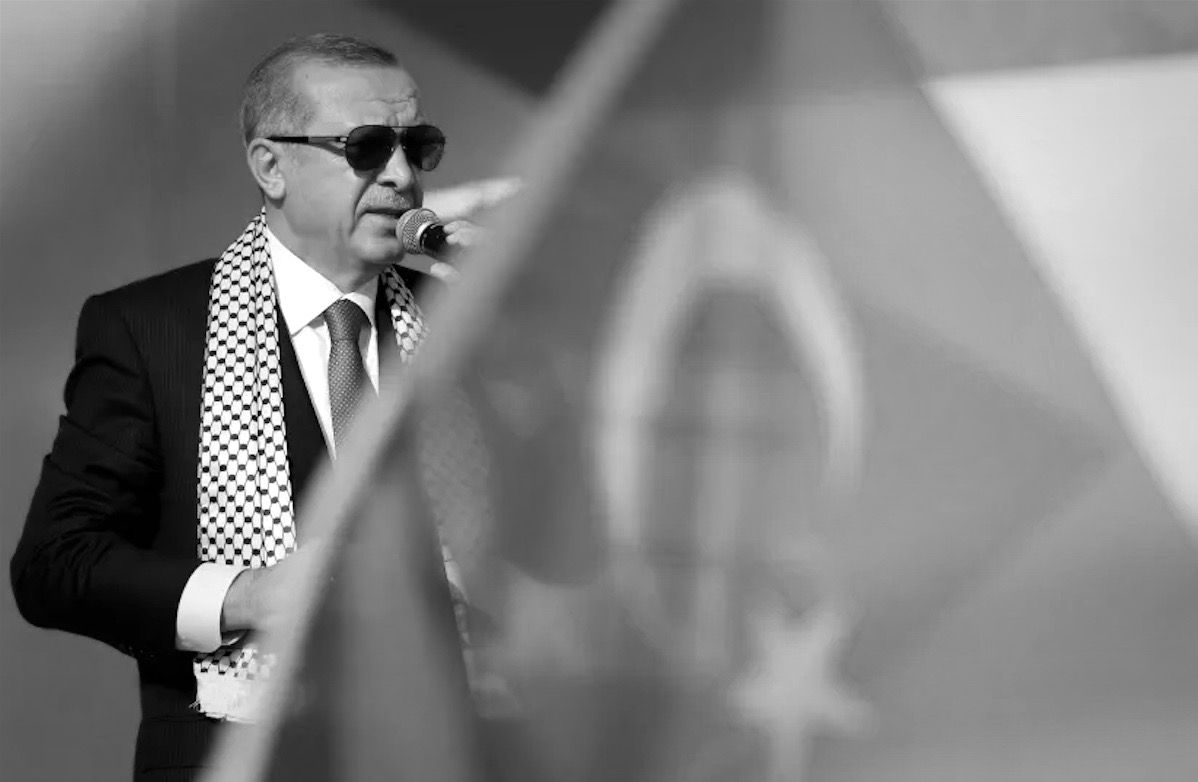In the last decade, Turkish foreign policy has experienced a series of upheavals that have not only changed Ankara's behaviour towards foreign countries but have also affected the domestic political balance of Turkey. These changes and the reasons behind them were the pivotal points discussed in the conference “Turkey’s Foreign Policy: Continuity and Change”, which was organised by the Sant'Anna School of Advanced Studies on December 9th, 2020. During this online event moderated by Sevgi Doğan – Research Fellow at the Sant’Anna School and collaborator of SAR-Italy at the Scuola Normale Superiore – the invited speakers discussed the major areas of crisis where Turkey has focused its foreign policy interest such as Syria, Libya and the Eastern Mediterranean.
ANKARA’S FOREIGN POLICY BACKGROUND
During the very beginning of the 21st century, the rise to power of the Islamic party AKP (Adalet ve Kalkınma Partisi – Justice and Development Party) did not alter Turkish foreign policy’s traditional pro-Western orientation. Turkey was considered as a strategic Middle Eastern partner of the US and the EU, given Ankara’s NATO membership and its ambition to access the EU. However, Turkish foreign policy doctrine experienced a remarkable change since 2009, when Ahmet Davutoglu was appointed Minister of Foreign Affairs. In his iconic book “Strategic Depth”, Davutoglu highlighted the need for Turkey to broaden its foreign policy horizons beyond the West, towards the former Sublime Porte territories: the Middle East, Western Balkans, and North Africa. The “zero problems with neighbours” narrative, Neo-Ottomanism and the new geographical orientation were the main pillars of Davutoglu’s regional strategy. This “axis-shift” from western to eastern oriented foreign policy enabled Turkey to become a key player in regional politics, as illustrated by the restoration of its relations with the Assad regime, the attempted mediation in the nuclear negotiations between the Western powers and Iran, and the improvement of its trade relations with Iraq, the Gulf states, Syria, Lebanon, Jordan, and North Africa.
Nevertheless, the new soft-power based posture did not last long since it was shocked by the failure of the post-Arab Spring transitions. The toppling of the democratically elected Muslim Brotherhood government in Egypt was a clear illustration of this. Following this setback, the AKP decided to implement hard power measures to raise its influence and protect its interests and allies in the region. Turkish involvement in the Syrian civil war provides a vivid example of this. However, Turkish new aggressive posture contributed to the rising tensions among Middle Eastern and Gulf countries. In a few years, Davutoglu’s “zero problems with neighbours” foreign policy turned into what President Erdoğan’s chief policy adviser Ibrahim Kalin has defined as precious loneliness.
Another event that has profoundly marked Turkish domestic and international posture is the 2016 attempted coup d’état which has stirred up the authoritarian and nationalist drift of the country. The AKP's rapprochement to the ultranationalists of the MHP (Milliyetçi Hareket Partisi – Nationalist Movement Party) that began in 2015 was consolidated, and continued with the constitutional referendum of 2017 (where the MHP supported the AKP's proposal to establish a presidential system in Turkey) and then with the formation of the so-called People's Alliance of 2018. This new political alliance between the AKP and the MHP has eased a Eurasian posture and the normalisation of ties with Russia. In 2016, for instance, President Erdoğan publicly expressed regret for the Russian Su-24 warplane shot down in Syria by a Turkish F-16 combat aircraft in 2015. According to Serena Giusti – researcher at the Sant’Anna School – Turkey’s rapprochement with Russia could be defined as selective and pragmatic cooperation. Economic and energy partnerships are paramount, since, for instance, Turkey represents for Russia the second main gas market after Germany. Recently, Russia-Turkey cooperation has been extended to the military field with Russia supplying Turkey with the advanced S-400 missile defence system, despite Ankara’s NATO membership.
TURKEY AND SYRIA
As stated during the conference by Francesco Strazzari – professor of International Relations at the Sant’Anna School – Syria has played a crucial role in the change of Turkey’s foreign policy. Until 2011, thanks to the “zero problems with neighbours” policy, Ankara had developed good relationships with the Assad family also due to the 2004 Free Trade Agreement between Turkey and Syria. However, following the outbreak of the Syrian civil war in 2011, the partnership between the two countries drastically deteriorated. Turkey decided to throw its weight behind the opposition and the Syrian Free Army, justifying this move with the aggression of Assad’s regime towards the Turkish military and civilians. In doing so, Ankara completely abandoned its cardinal foreign policy principle of zero problems with neighbours. In this regard, Dr Strazzari, stressed the importance of the Salafist component in the new militarized foreign policy of the AKP government, also considering Turkish active support for the Muslim Brotherhood and Islamist groups throughout the region, including jihadist networks. The rediscovery of political Islamism appears to be one of the three new tactics of the country’s foreign policy, along with the revival of nationalist positions (due to the alliance between the AKP and nationalist parties in Turkey and abroad) and anti-western rhetoric (with President Recep Tayyip Erdoğan claiming that there was an international plot to eliminate him).
THE KURDISH ISSUE
Half-way between domestic and foreign policy in Turkey, the Kurdish issue was treated during the conference by Ali Ekber Doğan – visiting fellow at the Sant’Anna School and visiting researcher at the Universität Siegen. From 2013 to 2015, according to the “zero problems with neighbours” doctrine, the Turkish government, and the PKK (Partîya Karkerên Kurdistanê – Kurdistan Workers' Party) engaged in a process of detente to resolve their long-running conflict. They indeed agreed on a ceasefire, negotiated the normalization of Kurdish politics within Turkey and the demobilization of PKK’s military. However, the rise of the Islamic State and the Syrian civil war threatened the rapprochement in Kurdish-Turkish relations. It is to be noted that the detente process was supported also by the US who needed the ground support of the Kurds in the conflict against ISIS. Indeed, the PKK’s Syrian affiliate, the militia of the PYD (Partiya Yekîtiya Demokrat – Democratic Union Party), has been one of the most effective ground troops in the US-led coalition against the Islamic State. The successes of Kurdish troops in the fight against ISIS in northern Syria (such as the capture of the strategic city of Tal Abyad) alongside the growing international and domestic support for the Kurds and the cross-border spread of Kurdish nationalism alarmed Turkish officials. Ankara feared the establishment of a permanent Kurdish autonomous region in Syria, which could have fuelled Kurdish separatism within Turkey. As affirmed by Ali Ekber Doğan, the fact that Turkey hesitated to intervene during the ISIS attack on the Syrian Kurdish town of Kobani, is one of the clearest examples of the deterioration of the fragile rapprochement between Turkey and the Kurds. Unsurprisingly, in July of 2015, the ceasefire fell apart and the hostilities between Turkey and the PKK resumed harsher than before. The situation worsened in 2016 when the AKP took advantage of the failed coup d’état to first limit personal freedoms by declaring the state of emergency and second to carry out mass purges of all Turkish institutions to eliminate any possible enemy of the government. These measures resulted in strong political repression and in the following arrest of tens of thousands of Turkish citizens (including Kurdish people and Kurdish political leaders in office) which have been jailed on ambiguous terrorism charges. Ankara’s hard-line policy of opposition to the PKK was furthermore in line with the change in the AKP political alliance with the MHP and its new nationalist position.
All the events discussed above show how Turkey has probably reached a point of no return by drastically changing its foreign policy behaviour, towards bellicose foreign policy activism. Accordingly, the nationalist pivot undertook by the AKP, the Syrian refugee issue, and the progressive reconciliation with Russia are currently eroding Turkish popularity among Western countries.
[read the second part of this report]
Cover photo: (C) REUTERS/MURAD SEZER

